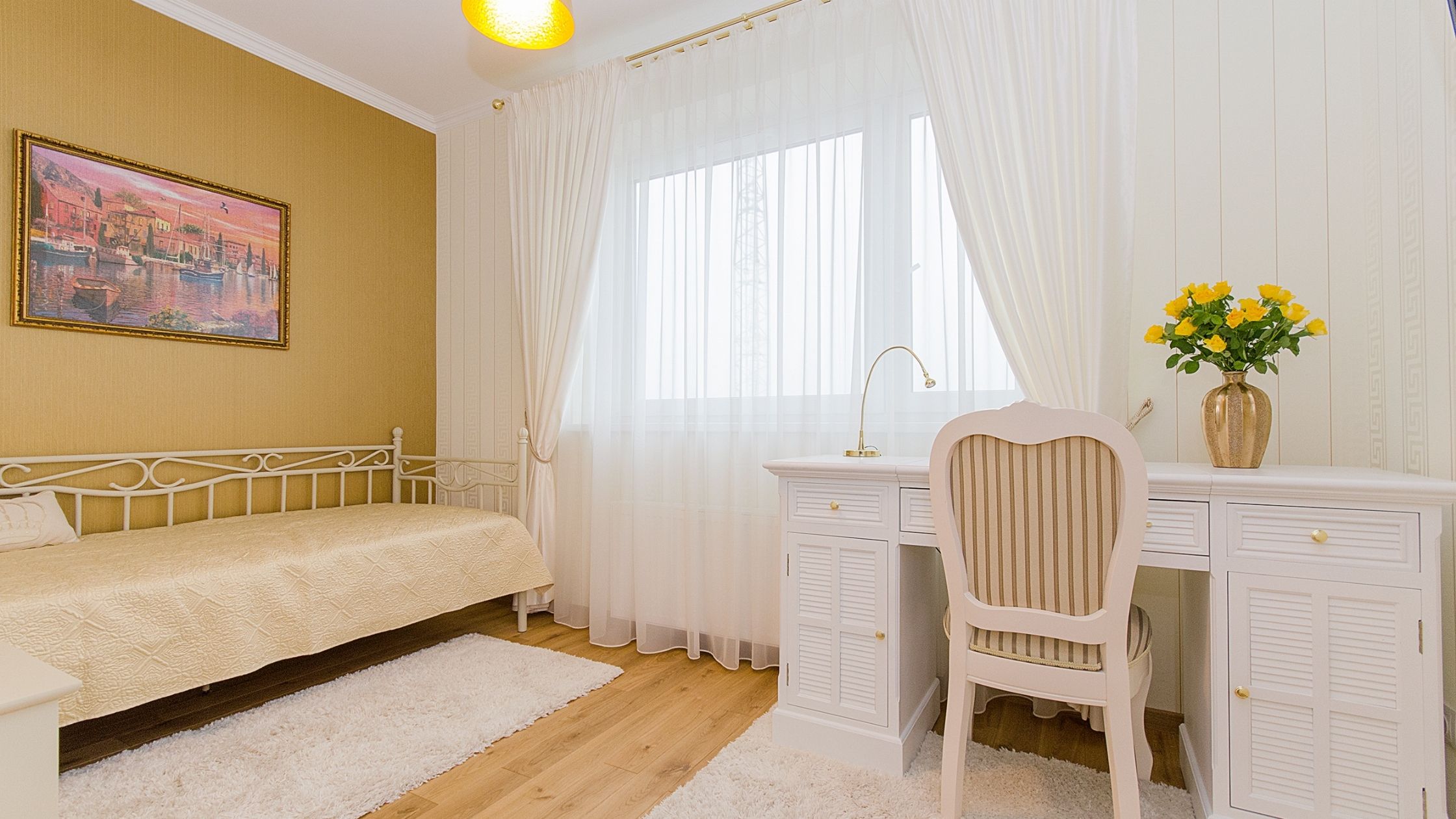Many successful projects started in the home office: remember only the story of Steve Wozniak, who actually assembled the first computer in the garage, which became the prototype of Apple’s revolutionary technology. In fact, every novice entrepreneur has the necessary resources to run a business at home: free space, a computer, a telephone, and even some equipment if you plan to organize production.
The advantages and disadvantages of working at home
The main advantage of implementing a business idea at home is the minimum investment: you do not need to make monthly rent payments and hire a whole staff of employees – at first, you can do all the work yourself. In this case, the entrepreneur does not risk losing money and being left with nothing. At the same time, you can do business without observing a rigid schedule and without being distracted from your homework.
But this business also has a lot of disadvantages.
It will take a lot of personal resources. At the launch stage, you will have to work for everyone – an advertiser, a sales manager, a worker in a production department. But at the same time, success and profit will not appear immediately. This is sometimes very demotivating.
Home business owners do not need to go to the office – they are always at work. Get ready to solve business problems at breakfast, while playing with children, or even late at night. If you can’t manage your time properly, you will have to say goodbye to the weekend.
You need to decide everything yourself. As long as there is no working team, the responsibility for the project lies entirely with you. On the one hand, you can embody even the most daring ideas, and on the other, there is no one to protect you from mistakes.
If, after studying all the pros and cons, you still decide to take a chance, we suggest exploring ideas for startups that deserve attention.
1. Rent out accommodation to travelers
If you live in a city that is often visited by tourists, you can post an offer to rent a bed, room, apartment, or private house on specialized Internet portals.
One of the most popular is the international portal Airbnb, which was created specifically for short-term rental housing around the world. The service is convenient for the landlord and guests: the former guarantees timely payment, while the latter can pay only if everything is in order with the apartment.
What you need:
Any accommodation. If you do not have your own, then you can take an apartment for a long-term lease, and rent it out for a short time.
Choose a convenient portal for advertising the offer.
Create a cozy atmosphere, maintain cleanliness, take care of the convenience of the guests. Cherish your reputation: guests leave comments about the quality of services on the portal.
Think over an additional service: offer guests to rent a car or a moped, use a washing machine or a coffee maker for a fee.
Through such services, you can sell your own services, for example, excursions. Even the strangest proposals are in demand. For example, in St. Petersburg, you can hire a guide to the Flea Market or a tour guide to walk through the famous cemeteries.
Cons: Irregular demand for housing will generate little income. The owners will have to either constantly improve the service, or create a whole network of such “numbers” at once.
2. Produce healthy snacks
In Russia, the number of people leading a healthy lifestyle is growing every year. And those who regularly play sports closely monitor their diet and the quality of the food they consume. Therefore, the popularity of “craft” industries is growing.
At home, you can prepare a wide variety of healthy and natural snacks. You can make fruit chips in a dehydrator, bake fruit and nut bars, make granola or muesli, or buy in bulk and pack herbal teas. A separate idea is the sale of superfoods, which are called the food of the future: they contain a large amount of easily digestible vitamins and active substances. These include both the outlandish goji berries, chia seeds, spirulline algae, and the familiar to the masses of cocoa beans.
What is required to organize a business:
Find reliable suppliers, great prices.
Understand the manufacturing technology: come up with recipes that will appeal to customers and help the entrepreneur earn money.
Purchase the necessary equipment: dehydrator, industrial oven, or filling machines.
Think over distribution channels. Make a sales proposal. Will you buy goods wholesale or retail? Do I need to think over a delivery system?
Important: food products must be certified. If the entrepreneur does not have documents, you can forget about concluding contracts with large companies. To get paper, you need to meet production requirements, which can be problematic at home.
An unusual home business for the production of useful products was invented by the Irkutsk entrepreneur Ivan Klimov. He created a line of raw-crushed oils: he bought natural raw materials – flax, walnut, sesame, and bought a hand press. I installed the equipment right in the apartment: I packed it myself, sold it and delivered the goods to customers. The production became waste-free: the businessman ground flour from the remains of low-fat raw materials came up with several mixtures of spices and seasonings for salads. At the same time, Ivan was blogging about a healthy lifestyle, where he talked about the benefits of natural oils: it was the Instagram profile that became the main platform for sales. A few years later, the entrepreneur hired a staff of 10 people and rented a workshop of 100 square meters.
3. Create a blog
In 2020, it’s already silly to deny that blogging is a big business. About a billion people visit Instagram every month – it is one of the most popular advertising platforms in the world; every day, opinion leaders earn millions from advertising and selling information products. It is enough to choose a platform for creating an account, and also learn how to make the content interesting to users.
What you need:
Choose a format. Form your blogging goals: you want to shoot funny vines, share expert knowledge, write lifestyle posts. The chosen direction depends on what kind of information will be of interest to the audience.
Choose a site, evaluate the advantages and competition at each.
Create content regularly. This may require photographic or video equipment and special props.
Think over a plan for promoting your account. Every social media or blogging platform has its own rules for posting content and the ability to reach a large audience. You may need to invest in advertising or hire specialists.
Not only can blogging be a standalone business, but it can also help any other startup.
The most famous Russian blogger is Anastasia Ivleeva. The total audience of the girl in social networks exceeds 20 million people, and the price of advertising integration is 1 million rubles. Ivleeva earned her first money on Instagram, posting short videos on the topic of gender relations.
4. Organize the rental of children’s products
Children quickly grow out of many toys: all that remains is a headache, where to put large things. Therefore, there is simply no point in buying some baby accessories for a long time: many would prefer to rent a thing and provide children with everything they need for relatively little money or test the thing before buying.
For the formation of the assortment of rental, a lot of children’s goods are suitable: furniture – playpens, cribs, car seats, strollers, trampolines, swimming pools, balance bikes, scooters and bicycles.
Toy rental number 1 is the largest of such services in Moscow. As the owner of the business, Maria Popova, recalls, they were the first in the capital to come up with an idea to offer people to rent children’s goods. The entrepreneur in a conversation with the edition “Zhazhda” gave specific figures. At the start, the project had only 3 customers and 20 toys. In five years, the business has acquired a permanent audience of 40 people, and the number of titles has grown to 300. Maria’s earnings, depending on the season, ranging from 20-50 thousand rubles. According to the girl, the project cannot be called a “gold mine”, but rather a social business.
Anyone who has children can arrange rental practically without investment: it is enough to lease their own things. The main disadvantage of the business is that if you want to increase the number of rental items, you will have to find additional storage space.
5. Sell hand-made goods
If you know how to knit clothes, sew toys or come up with accessories, it’s time to think – is it time to monetize your skills? The most common problem of many talented craftsmen is that they do not know how to sell their products and services. Therefore, there is competition in the field, but there are also many opportunities. What types of handicrafts are selling well?
Sewing clothes, accessories.
Hand and machine knitting.
Creation of interior items.
Making soft toys – comfortable hares for sleeping babies, bears, rag dolls.
Embroidery paintings.
Scrapbooking – decorating notebooks, photo albums.
To make money on hand-made, you need to choose a niche. It is better to build on what things are in demand, but to make things original, not to copy other people’s ideas. Then get on with positioning and promoting your personal brand. Advertising is the engine of trade, so start a blog, post only beautiful photos.
If you are fluent in a brush or knitting needles, you can give online lessons or create masterclasses. This is how Anastasia Asanova, the founder of the Shop Bulavka project, makes money. The girl creates designer knitwear and sells detailed instructions to other craftsmen, and also organizes “part-time” knitting marathons with paid entry to the work chat. Asanova’s Instagram profile has more than 70 thousand subscribers, and about 13 thousand people follow the project’s working account.
Another promising niche is soap making. Those who believe that making soap is futile simply do not get sick with their work! Enterprising craftsmen have learned to make not just hand washing products, but products with a cosmetic effect, solid shampoos and conditioners, and bath bombs.










